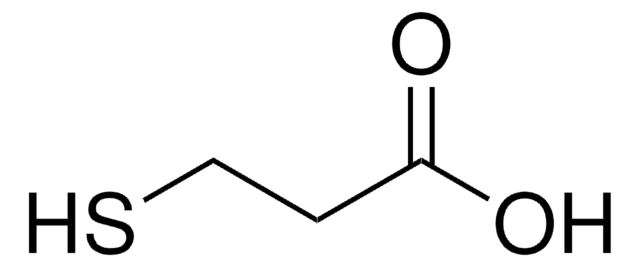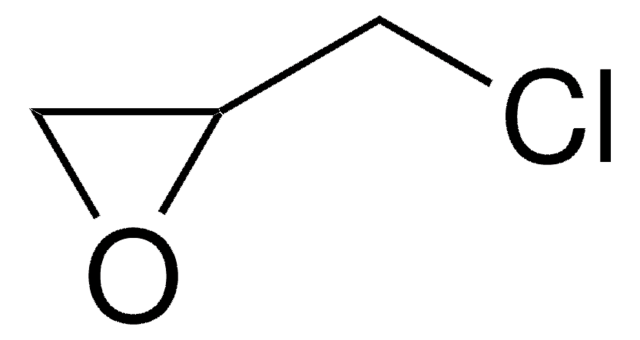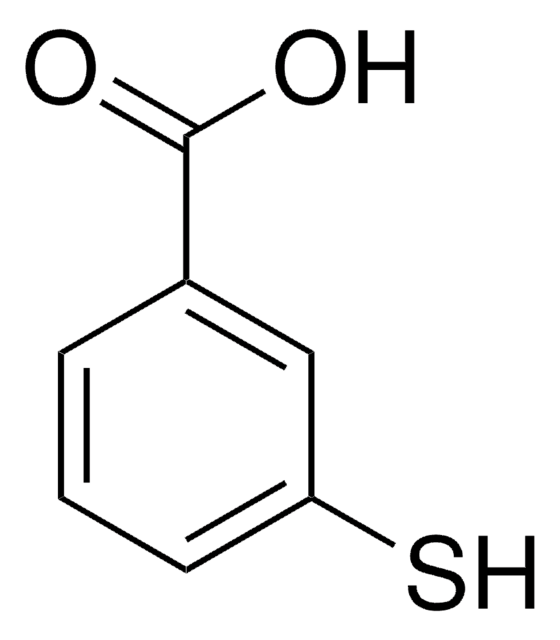About This Item
Recommended Products
Quality Level
Assay
90%
refractive index
n20/D 1.4846
density
1.0715 g/mL at 25 °C
storage temp.
−20°C
SMILES string
OC(=O)CCCCCS
InChI
1S/C6H12O2S/c7-6(8)4-2-1-3-5-9/h9H,1-5H2,(H,7,8)
InChI key
CMNQZZPAVNBESS-UHFFFAOYSA-N
Gene Information
rat ... Ace(24310)
Related Categories
General description
Application
Signal Word
Warning
Hazard Statements
Precautionary Statements
Hazard Classifications
Eye Irrit. 2 - Skin Irrit. 2 - STOT SE 3
Target Organs
Respiratory system
Storage Class Code
10 - Combustible liquids
WGK
WGK 3
Flash Point(F)
Not applicable
Flash Point(C)
Not applicable
Personal Protective Equipment
Choose from one of the most recent versions:
Already Own This Product?
Find documentation for the products that you have recently purchased in the Document Library.
Customers Also Viewed
Articles
Inorganic nanomaterials are tunable by size, shape, structure, and/or composition. Advances in the synthesis of well-defined nanomaterials have enabled control over their unique optical, electronic, and chemical properties stimulating tremendous interest across a wide range of disciplines. This article illuminates some of the recent research advances of inorganic nanoparticles (NPs) in optoelectronics applications.
Self-assembled monolayers (SAMs) have attracted enormous interest for a wide variety of applications in micro- and nano-technology. In this article, we compare the benefits of three different classes of SAM systems (alkylthiolates on gold.
Our team of scientists has experience in all areas of research including Life Science, Material Science, Chemical Synthesis, Chromatography, Analytical and many others.
Contact Technical Service






![O-[N-(6-Maleimidohexanoyl)aminoethyl]-O′-[3-(N-succinimidyloxy)-3-oxopropyl]polyethylene glycol 3,000 Mp 3,000](/deepweb/assets/sigmaaldrich/product/structures/296/558/8fba6773-c240-41a2-ac1d-15c2185ceddd/640/8fba6773-c240-41a2-ac1d-15c2185ceddd.png)





